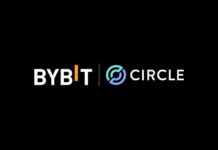
The ongoing dispute over an attempt by the Internal Revenue Service (IRS) to issue a “John Doe” summons on Coinbase, a company which facilitates transactions of digital currencies like Bitcoin and Ethereum, continues to play out in court. Today, Coinbase customer and attorney Jeffrey K. Berns, the Managing Partner of Berns Weiss LLP, filed an answer to the IRS’ response to his motion to intervene and quash a “John Doe” summons served by the IRS on Coinbase to identify Bitcoin users.
The case began in November of 2016 with a request filed on behalf of the IRS to serve a “John Doe” summons on all United States Coinbase customers who transferred Bitcoin, a convertible virtual currency, from 2013 to 2015. A “John Doe” summons is an order that does not specifically identify the person but rather identifies a person or ascertainable group or class by their activities.
The initial request was granted by Judge Jacqueline Scott Corley. In response, Berns filed a motion to set aside the ruling and prevent the summons from being issued. He did so as an “intervenor” meaning that he was asking the court to allow him to participate in the legal process even though he had not been specifically named in the original summons, arguing that the summons was overbroad and would expose private customer data to hackers. Berns was also concerned about the “chilling effect” the summons could have on the entire blockchain technology industry.
On December 27, 2016, the IRS filed a motion in court to allow the tax agency to proceed with the “John Doe” summons. The IRS argued, in part, that since Berns had “outed” himself as a Coinbase customer, he was no longer subject to the summons. That means, argued that IRS, that the matter as it affects Berns was resolved, making the motion moot and clearing the way for IRS to begin to identify Coinbase customers.
However, in the latest round of legal maneuvering, Berns has filed a reply to the IRS response, countering the IRS’ argument. Berns argues that the IRS is attempting to “artificially moot the motion” because it does not want the Court to scrutinize its actions in pursuing a summons he characterizes as “improper.” Berns also argues that the “John Doe” summons statute does not allow the government to shield itself from inquiries into whether it has acted in good faith. Finally, Berns contends that the Court should reconsider its decision to allow IRS to issue the summons when questions remain about the IRS’ motives for seeking the information; specifically, Berns disputes that there is any basis for the IRS “or anyone to conclude that it is likely that Coinbase’s customers are engaging in any tax avoidance conduct merely because they opted to transact with virtual currency.”
Berns points to the fact that IRS has withdrawn its summons as it applies to him; the IRS says that because Berns identified himself as a Coinbase customer, it does not need any further information about him from Coinbase. Berns says this is proof that the summons was issued in bad faith, stating that if IRS does not need any specific transaction or related information for Berns, it similarly should not need that information for any other Coinbase customer. Berns says that the withdrawal of the summons as it applies to him is merely a “transparent attempt by the IRS to avoid judicial review.”
In Berns’ most recent motion, he notes that he is prepared to withdraw his initial motion if the Court reconsiders its initial ruling. His goal, he says, is to protect the rights of Coinbase’s customers “from the clear bad faith conduct of the Government in obtaining the right to serve the IRS summons.” Additional inquiry into the Government’s motives, he says, is necessary.
Without further legal action, the motion is scheduled to be heard on January 19, 2017.
[newsletter_form lists="1"]










